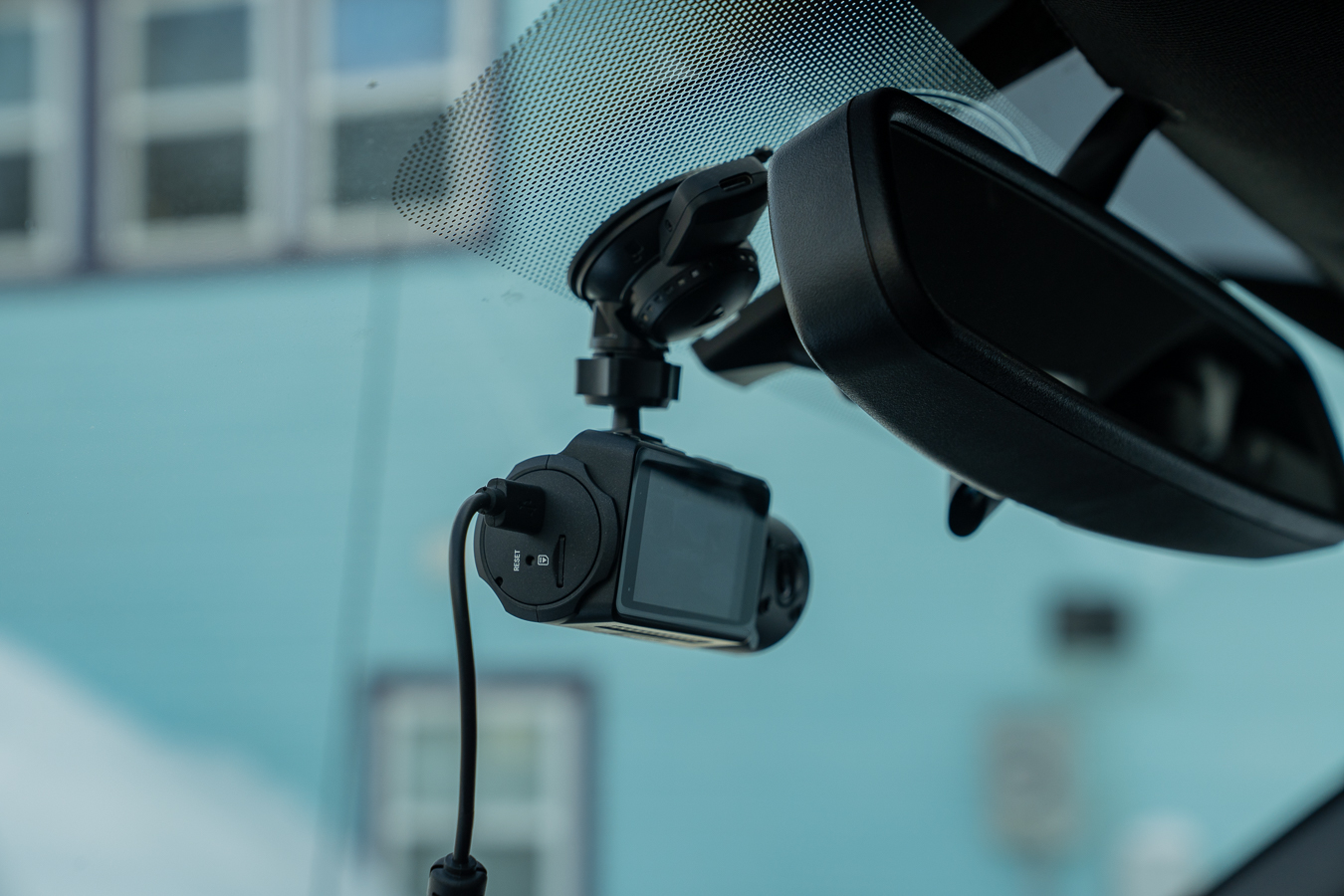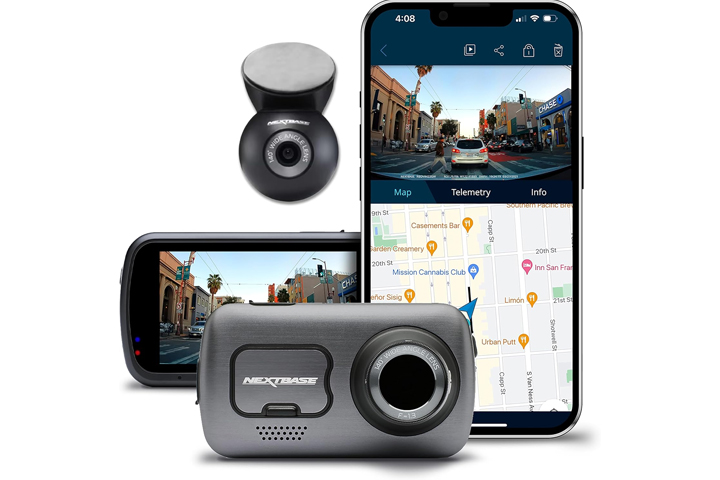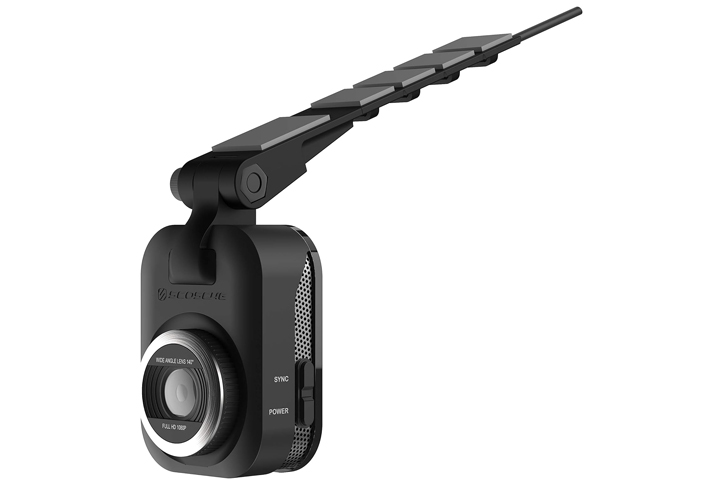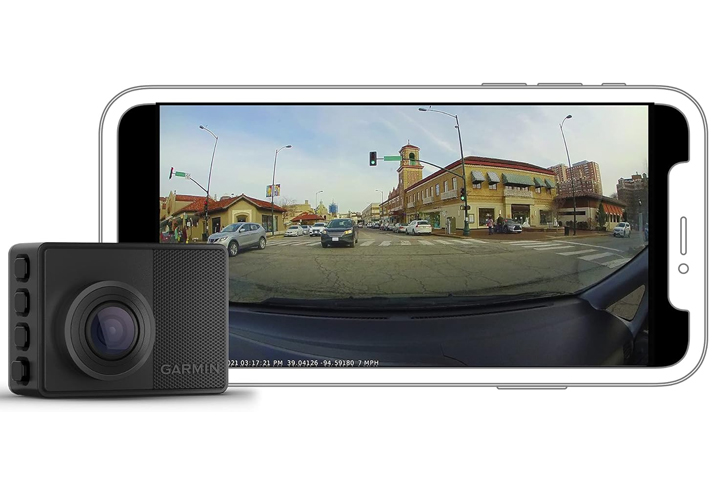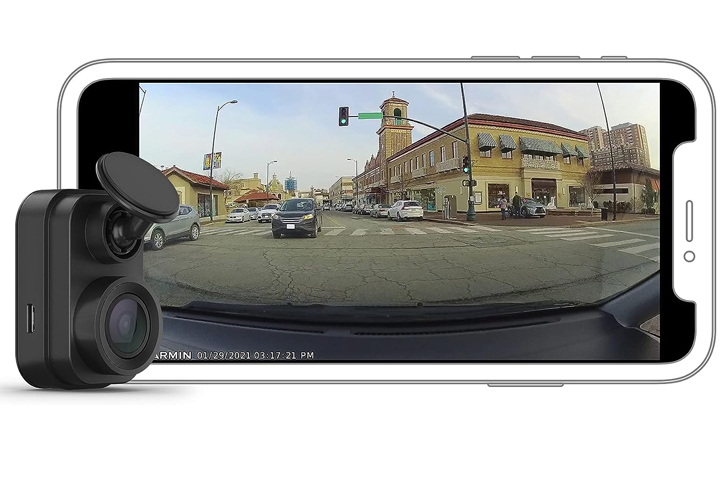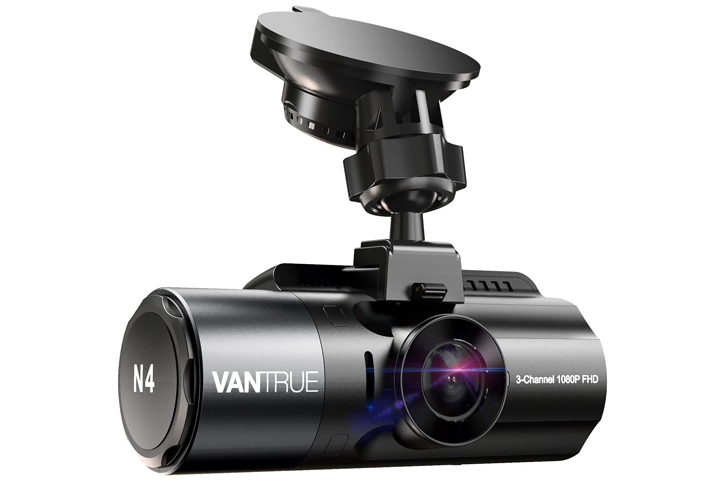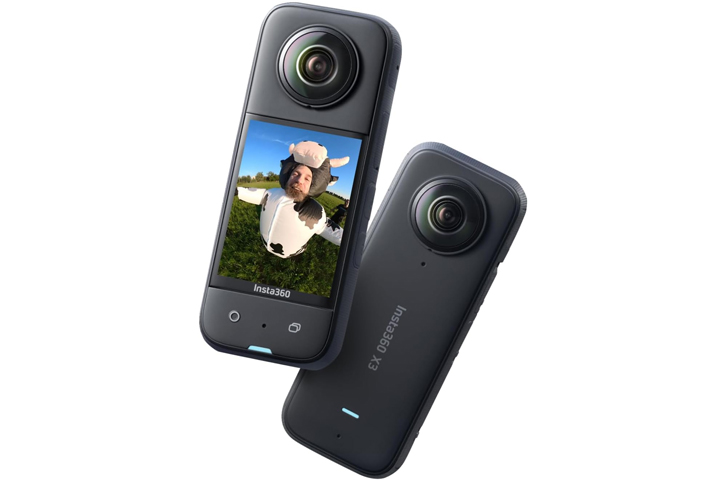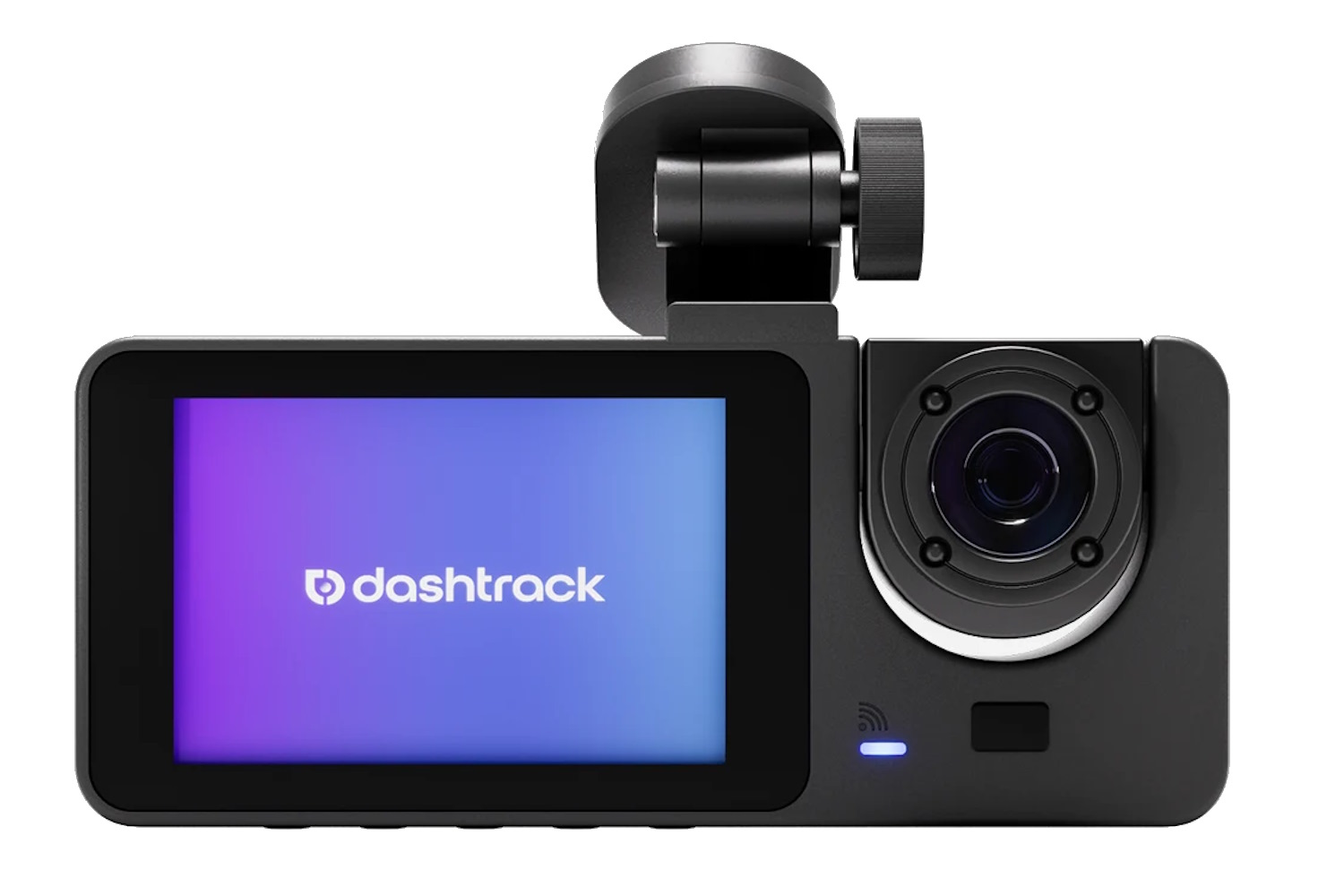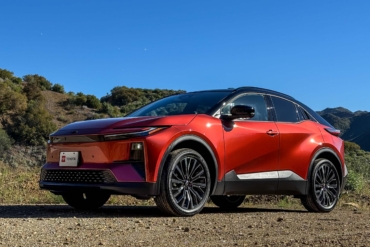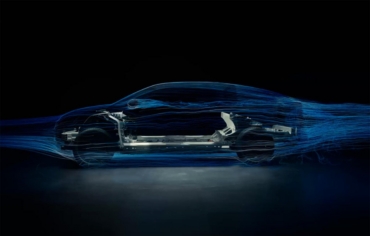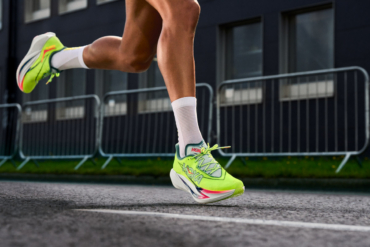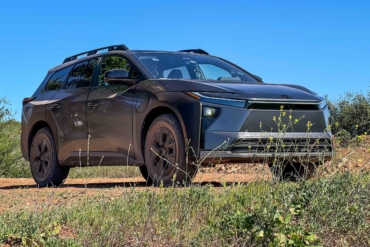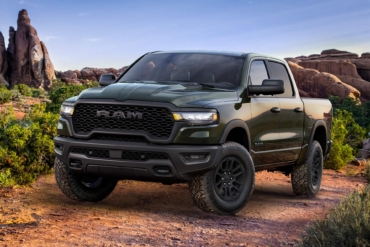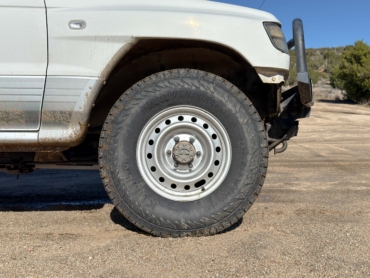Wild things can happen while driving a vehicle. Accidents, natural phenomenons, animal sightings or collisions, and a range of entertaining moments. Capturing those seconds on video with a dash cam, aka dashboard camera, provides evidence during unplanned events. Alternatively, footage can lead to creative clips that go viral on the internet.
The National Highway Traffic Safety Administration reports that more than 5 million car accidents occur nationwide each year, which is more than 13,000 accidents every day. Whether you drive a car, truck, camper, or van, a digital record can come in handy following a fender bender.
A wide variety of dash cams are available today. In this guide, we cover different camera resolutions and devices with and without screens. We also examine various perspectives, including front, inside, and rear cameras. Other key details we examine include the ability to record at night, monitor parked cars, and track GPS locations.
We dug through the depths of the internet to find the best dash cams available. Then we put those setups to the test on our rigs and along the high alpine roads of Southwest Colorado. To learn more about the features of dashboard cameras be sure to check out the Buyer’s Guide or jump to the Price & Value summary. Still weighing your options? Consult our Comparison Chart for a side-by-side spec comparison. Otherwise, take a look at our awarded goods.
Editor’s Note: We updated our Dash Cams buyer’s guide on October 24, 2024, to include the DashTrack Series8.
The Best Dash Cams of 2026
NextBase 622GW
- Image Quality: 4K (3840 x 2160)
- Frame Rate: 4K 30fps, 1440p 60fps, 1080p 120fps
- Field of View: 140º
- Parked Car Monitoring: 24/7 monitoring
- GPS Tracker: Yes
Pros
- Quick detach mount makes easy camera storage
- High-quality 4K video provides exceptional detail
- Incredible HDR and night vision
- 24/7 monitoring and GPS tracking
- Easy to save, playback, and download videos
Cons
- Priciest option tested
- Narrower field-of-view than others
- Power plug requires full outlet without alternative
Scosche NEXS10032-ET
- Image Quality: HD (1920 x 1080)
- Frame Rate: 30fps
- Field of View: 140º
- Parked Car Monitoring: 24/7 monitoring
- GPS Tracker Integration: Possible via Nexar app
Pros
- Priced affordably
- Easy install thanks to the provided tools
- Automatically starts recording when you turn on vehicle
Cons
- Only 1080p video quality
- Not loaded with bells and whistles
- Plastic mount feels low-quality and lacks rigidity
Garmin 67W
- Image Quality: 1440p HD (2560 x 1440)
- Frame Rate: 60fps
- Field of View: 180º
- Parked Car Monitoring: Yes, with app
- GPS Tracker: With subscription
Pros
- Easy voice control
- Travelapse (video timelapse) of your trip
- Integrated GPS
- 60fps 2x slow-motion
Cons
- No SIM card included
- Not quite 4K video
- Only one camera angle
Garmin Mini 2
- Image Quality: HD (1920 x 1080)
- Frame Rate: 30fps
- Field of View: 140º
- Parked Car Monitoring: With constant power cable, sold separately
- GPS Tracker: No
Pros
- Small size enables unobstructed windshield
- Great voice control
Cons
- No touchscreen means only the app can access videos
- App can be clunky
- Only 1080p
- No GPS or parked car monitoring
Vantrue N4
- Image Quality: Only front 4K, 3 Channel 1440p HD (2560 x 1440)
- Frame Rate: 30fps
- Field of View: Front 155º, Interior 165º, Rear 160º
- Parked Car Monitoring: 24/7 monitoring
- GPS Tracker: Sold separately
Pros
- 3 cameras for 360º vehicle coverage
- Infrared interior camera captures usable video at night
- Up to 4K video when using only front-facing camera
Cons
- Large size occupies windshield space
- No app compatibility
- Interior camera means you can't hide setup behind rearview mirror
- Cable routing can be difficult to manage
Insta 360 X3
- Image Quality: 5.7K
- Frame Rate: Up to 30fps
- Field of View: 360º
- Parked Car Monitoring: No
- GPS Tracker: No
Pros
- One camera for multiple uses
- 360º camera angle captures everything from inside to in front
- 5.7K Video
Cons
- No additional features like other dashcams
- Most bulky system tested
- Only saves video for 15 minutes
DashTrack Series 8
- Image Quality: 1080p enhanced TrueScan
- Field of View: 170°
- Parked Car Monitoring: Yes
- GPS Tracker: No
Pros
- AI enhanced image clarity
- Budget friendly
- 10-year Warranty
- Easy install
Cons
- Cabin camera needs wider FOV
- Power source is cigarette adapter only
- No Wifi
- Reverse camera may not be feasible for all vehicles
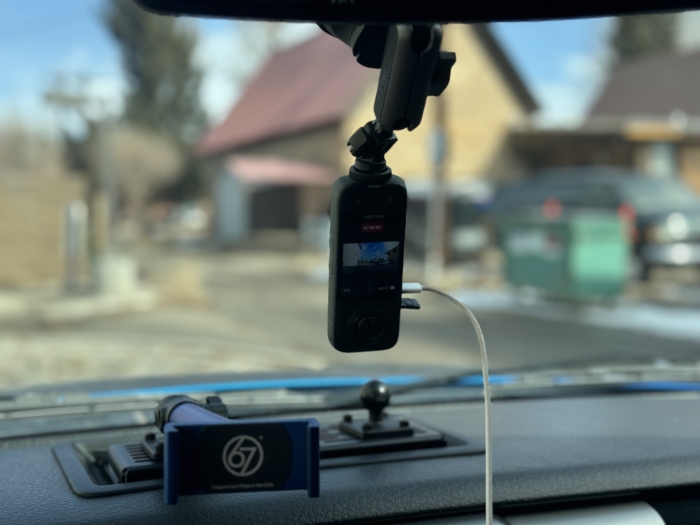
Dash Cams Comparison Chart
Scroll right to view all of the columns: Price, Image Quality, Frame Rate, Field of View, and GPS Tracker.
| Dash Cams | Price | Image Quality | Frame Rate | Field of View | GPS Tracker |
|---|---|---|---|---|---|
| NextBase 622GW | $500 | 4K (3840 x 2160) | 4K 30fps, 1440p 60fps, 1080p 120fps | 140º | Yes |
| Scosche NEXS10032-ET | $50 | HD (1920 x 1080) | 30fps | 140º | Possible via Nexar app |
| Garmin 67W | $260 | 1440p HD (2560 x 1440) | 60fps | 180º | With subscription |
| Garmin Mini 2 | $130 | HD (1920 x 1080) | 30fps | 140º | No |
| Vantrue N4 | $260 | Only front 4K, 3 Channel 1440p HD (2560 x 1440) | 30fps | Front 155º, Interior 165º, Rear 160º | Sold separately |
| Insta 360 X3 | $427 | 5.7K | Up to 30fps | 360º | No |
| DashTrack Series 8 | $139 | 1080p enhanced TrueScan | 170° | No |
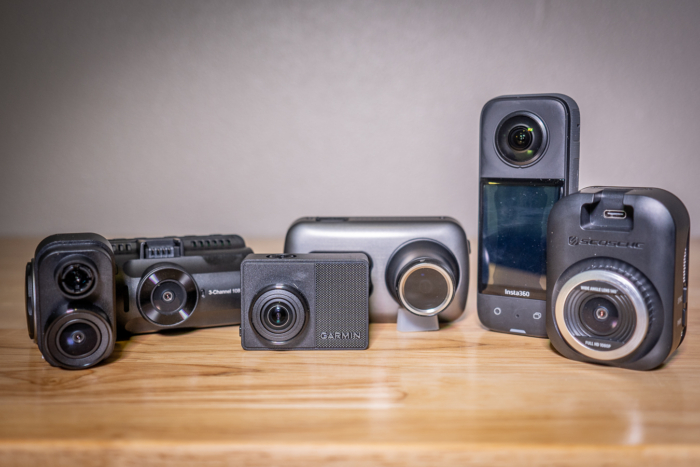
How We Tested Dashboard Cameras
Our Expert Testers
Our lead tester, Eric Phillips, has been an outdoor professional for the last 10 years. He’s also a hobby automotive enthusiast. Phillips has spent his photography and videography career using and reviewing cameras of all varieties and editing endless camera footage.
Tester and photographer Chip Jordan helped with this guide. He is an all-around outdoorsman and gearhead. He’s spent a minute or two exploring various cameras and their capabilities throughout his photography career.
Our Testing Grounds
A handful of our automotive GearJunkie testers live in a remote corner of the Western United States including our lead tester, writer and photographer, Eric Phillips. That means ample drive time, prolific wildlife, fallen rocks, and other hazards that are constantly present on the road.
Two of our test vehicles were a 2017 Toyota Tacoma and a 2014 Ford F-150 Raptor. Throughout the rounds, we encountered multiple road hazards. These included multiple wildlife encounters and large rocks obstructing the pavement on high-altitude mountain passes. There were also dangerous drivers and a plethora of beautiful mountain views.
Jordan is based in New Mexico and also overlands all over the Southwest.
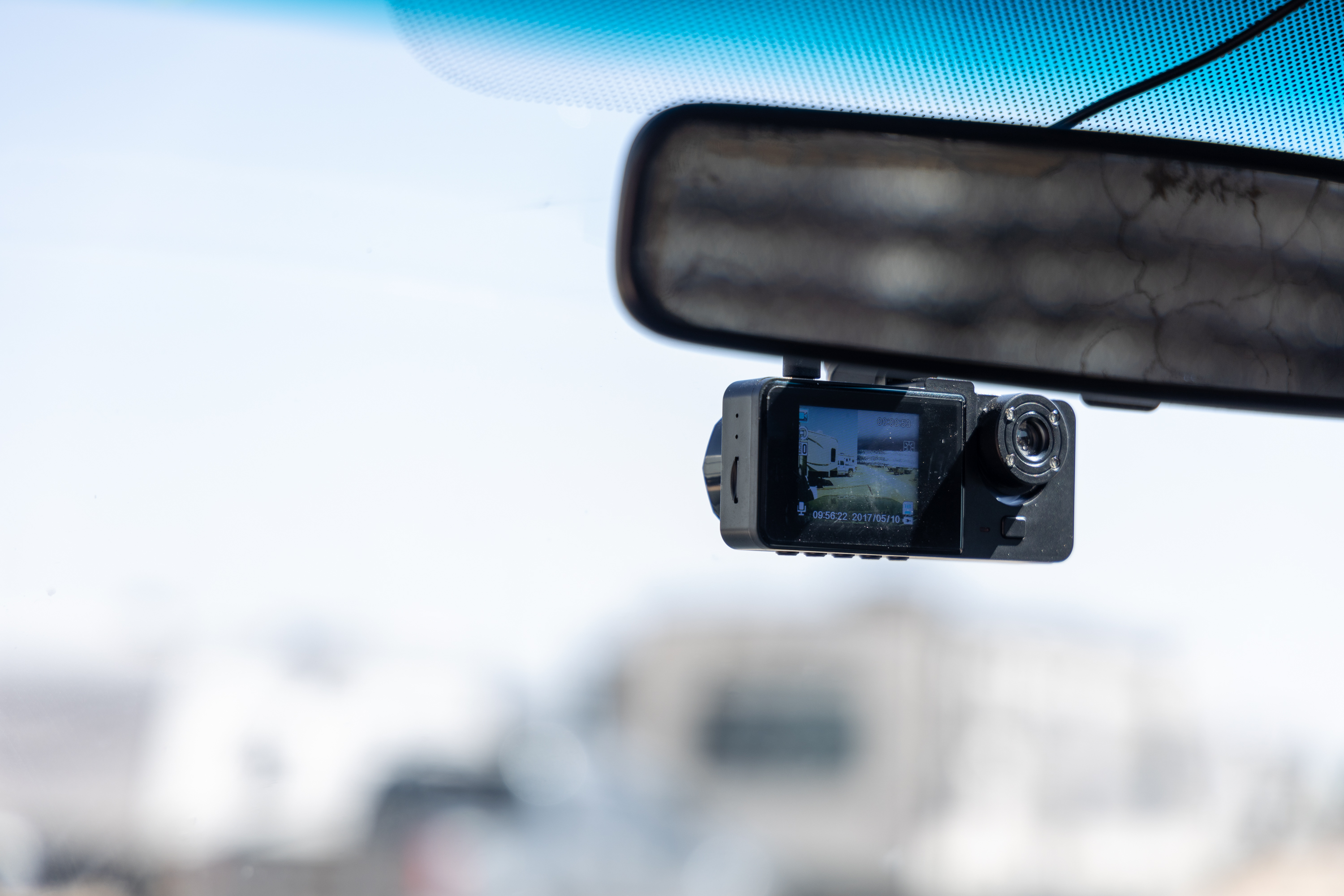
Our Testing Process
We thoroughly tested each dashboard camera by installing the camera and using the device to film everything. These dashboard companions were taken on long road trips, grocery store runs, dirt roads, and through plenty of public parking lots.
Each spec was tested, and we compared camera footage head to head. Our experts studied how easily license plates could be read from a distance. We also checked out usability: how easy it was to save, playback, and export video footage.
Throughout our field tests and personal experiences, we determined the best dashboard cameras based on a variety of metrics. We considered the frame rate, field of view, size, and ease of use. We also took into account the clarity of footage, durability, installation, mounting ease, and overall quality of the camera.
Beyond our tests, we also considered the most popular, award-worthy, universal, sustainable, and affordable designs. These dashboard cameras serve a range of uses, styles, and budgets.
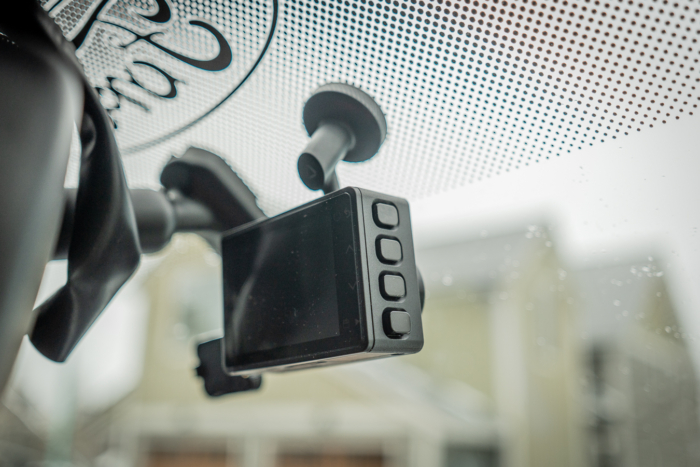
Buyer’s Guide: How to Choose a Dash Cam
Camera Quality
Dashboard cameras can be designed with various functions, but arguably the most important detail is the camera. Camera quality can make or break interpreting the fine details in a recording, like reading the license plate of a hit-and-run.
As you consider camera quality, there are several tiers in our guide.
Lowest Quality
In that foundational quality tier, you’ll find cameras with 1080p HD. That number (1080) refers to the number of pixels on the short edge of your camera screen.
Each pixel is a data point that your camera records. The higher the number of pixels, the sharper the image will be, and the more you can zoom in on the details. To be more specific, a camera labeled 1080p HD is shorthand for 1920 x 1080 pixels, which is standard High Definition (HD). This tier holds the lowest-quality cameras in our guide.
Moderate Quality
The next step up in camera quality is 1440p, which is short for 2560 x 1440 pixels. While this might not seem like a large advancement, it’s nearly twice the amount of pixels as the standard HD. This level of quality provides a noticeable difference and sharpness.
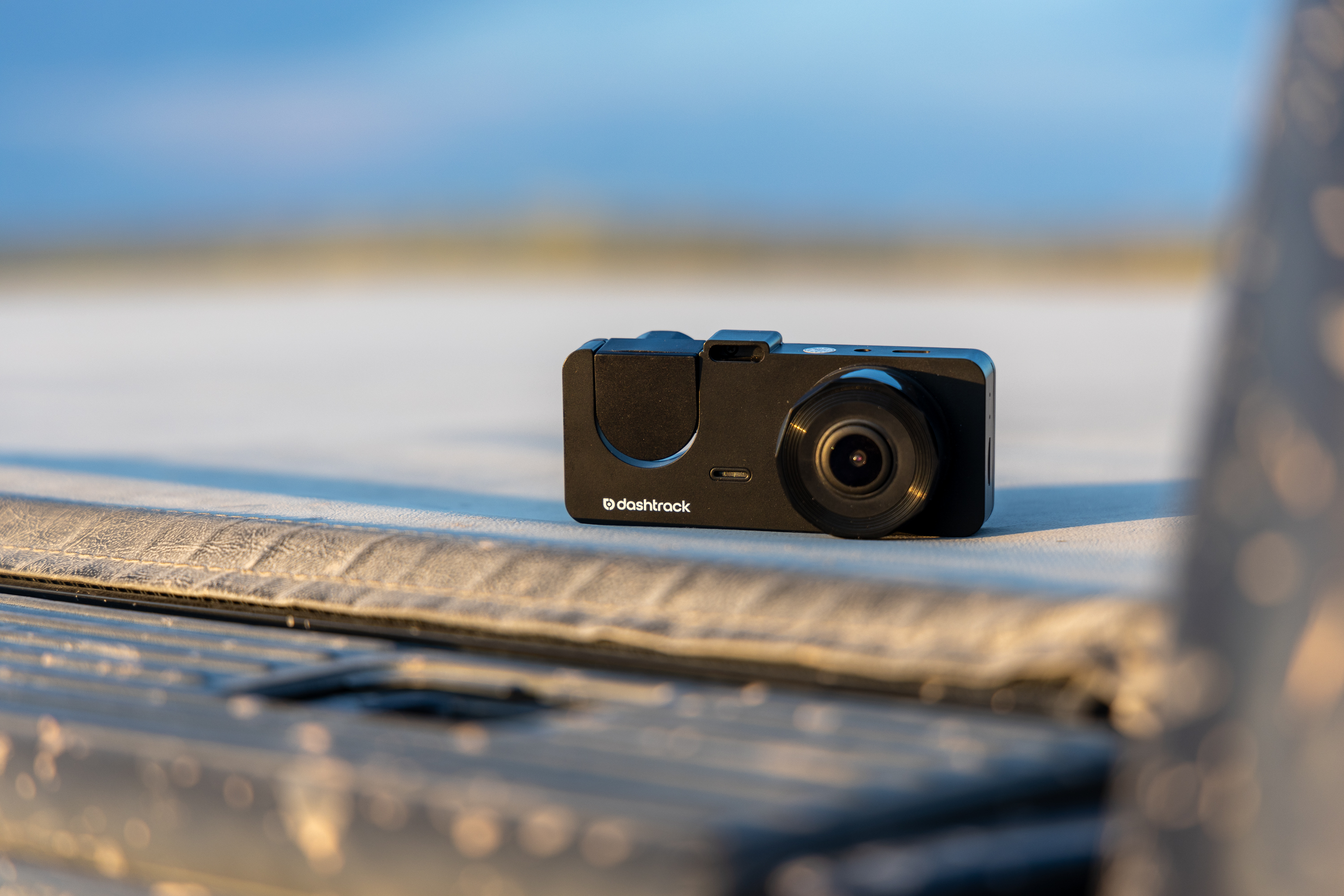
High Quality
Progressively, you can level up with a camera outfitted with 4K, which refers to 3840 x 2160 pixels. That’s quadruple the amount of pixels as standard HD. Shooting in 4K not only drastically increases the sharpness of the video but allows you to crop or zoom into the video 2x and still retain 1080p HD quality.
Highest Quality
The highest camera quality on our list is the Insta 360 X3, which records 360-degree video in a whopping 5.7K (5700 x 3206 pixels).
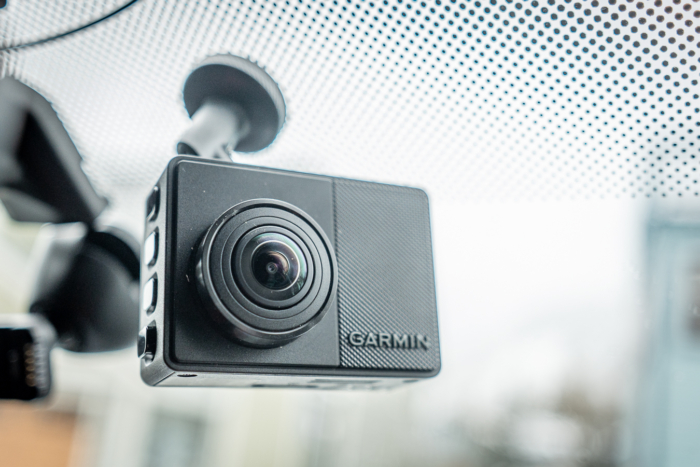
Mounting & Cable Routing
Dashboard cameras are meant to be mounted near the top and center of your windshield. They can be placed close to where the rearview mirror hangs.
Mounting
Each dash cam design has a slightly different way to mount the camera to your windshield.
Some dashboard cameras — like the Garmin 67W, Garmin Mini 2, DashTrack Series 8, Scosche NEXS10032-ET, and NextBase 622GW — have a single-use adhesive mount that the camera attaches to.
The mount of the Garmin units is a ball-and-socket design that attaches to the back of the camera. They are the leanest mounts in terms of size. Not all mounts offer the same adjustability and range of motion.
The mount of the Scosche cam only pivots forward and backward — not left to right. So make sure the camera is properly placed before sticking it to the windshield. That camera’s mount was also the largest though the lengthy base does have sleek housing for cable management.
Cable Routing
The corresponding power cable and any additional camera cables should be routed upward to the vehicle’s headliner (the lining that covers the ceiling of the cabin). Modern vehicles with a smart or intelligent rearview mirror usually have a power cable that the dash cam wiring can attach to.
To tuck the wiring in, you’ll run it above the headliner (preferably hidden) to the edge of the windshield on the passenger side. The cable will continue down, along the pillar and door jam to reach beneath the passenger footwell. Then the cable goes up to a power source.
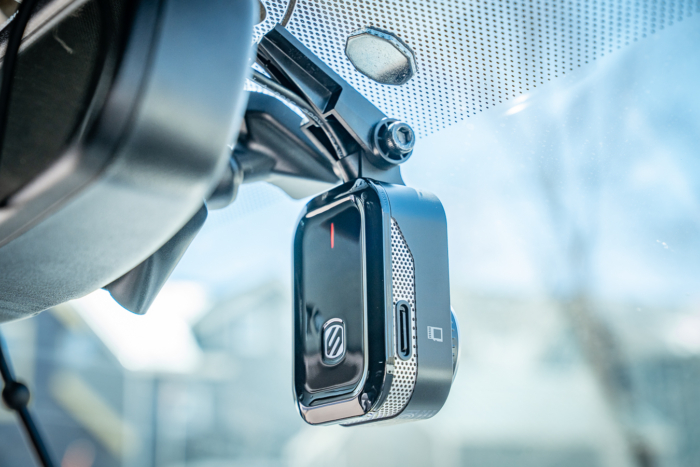
Designs: Cables, Mounts, & Tools
Looking at our table of options, the NextBase 622GW had a cable-powered mount and a magnetic quick-connect. That way, you can easily and efficiently remove or add the camera to the mount.
Another house of mounts uses suction. These systems are usually larger in terms of occupying the windshield space but can easily be removed. So, the windshield can be left clean and clear when the dash cam is not in use. Also, the camera can be installed repeatedly and in different locations. Both the Insta360 and the Vantrue use suction-style mounts.
The Insta 360 X3 is battery-powered and can run as a dash cam without any cable attached. It also has a USB-C port, so the device can charge up while it’s in dash-cam mode. But, the cable hangs down in front of the windshield to reach the power port. Other cameras have an extended power cord that can be hidden along the windscreen and around to the power adapter.
Only the NextBase 622GW and Scosche NEXS10032-ET came with a plastic pry tool for tucking the wire underneath the trim panels. Also, Scosche was the only dash cam to include supplies. The bundle had zip ties, wire wraps, cleaning wipes, and multiple adhesive stickers to route the cable. As the cheapest option on our list, we were impressed with the installation kit.
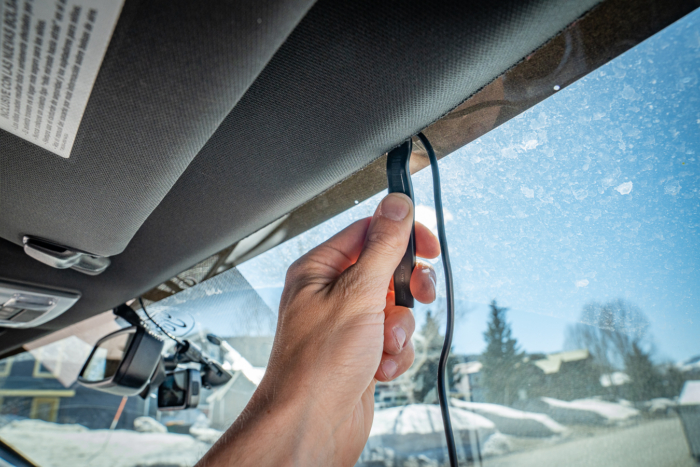
App Function & Controls
Most of the dash cameras in our guide use a corresponding app to view the footage. Typically, the app lets you playback previously recorded footage and control the settings of the dash cam.
Usually, the camera’s ability to record doesn’t hinge on the app. But it’s a good idea to download the app and have it synced with your phone while you drive.
In contrast, the Garmin Mini 2 doesn’t have a screen and relies heavily on the app for drivers to set up and manage the dash cam. During testing, we experienced connectivity issues with the Garmin Drive app. The app would unpair with the dash camera, which led to a complex pairing process after each use.
We found that the NextBase app, MyNextbase Connect, was easy to use. The app could playback or download footage and included an SOS button to alert emergency services via GPS even without cell phone service available. For the Scosche NEXS10032-ET, the Nexar app has a live map on the home screen that we loved. But the rest of the app wasn’t our favorite.
Also noteworthy: The Vantrue N4 isn’t Wi-Fi-compatible and, therefore, does not have phone connectivity. Drivers can play back footage and manage the settings directly with the device’s buttons and touchscreen.
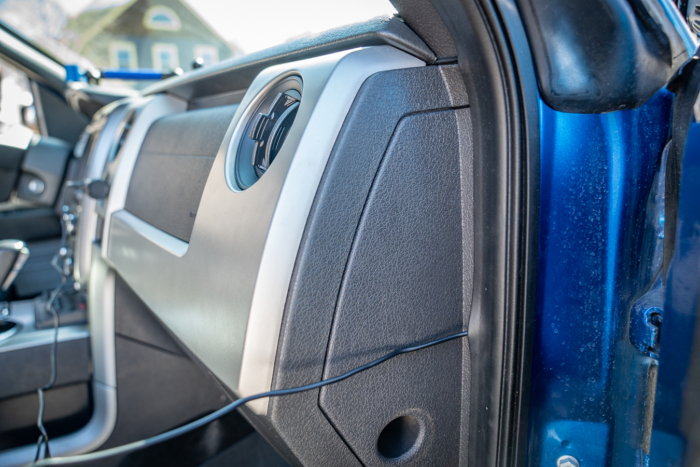
Multi-Lens Cameras
A dash cam’s primary camera faces the front of the vehicle toward the hood of the car or truck and the external environment. For most drivers, this angle is enough. Other drivers need to capture additional video and audio from the interior of the vehicle or behind the vehicle.
Interior Camera
The inside or interior camera refers to a dash camera body that houses a second lens. That supplementary lens points backward at the driver and passengers and captures the action inside the vehicle.
This additional feature is important for vehicles in the car-sharing workforce, commercial or emergency vehicles, or for drivers with kids. Regardless of who your passengers are, sometimes you want to have them recorded. These cameras also usually record audio from inside the cab.
Since the interior camera is already integrated into the dash cam, there’s no need to route another camera wire. The Vantrue N4 and the Insta 360 X3 both include interior cameras. However, the Vantrue N4 and DashTrack Series 8 are the only ones that simultaneously collect both views.
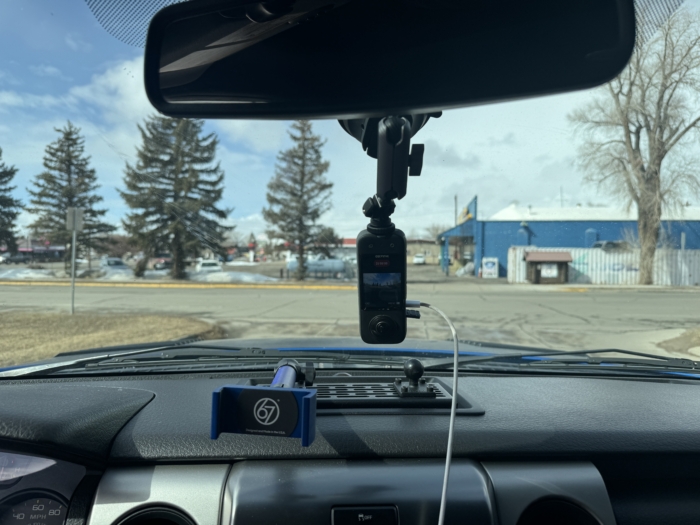
Rear-Facing Camera
The rear-facing camera refers to a third, separate camera that is mounted to the rear glass of a vehicle. The rear camera records footage of what’s going on behind the rig, from the back of the vehicle.
This camera angle is particularly helpful if a rear-end accident happens. The sweat equity? You will need to run a cable along the entire headliner to connect back to the front, primary dash cam on the windshield.
Vantrue N4 and DashTrack Series 8 are decked out with a rear-facing camera. The NextBase 622GW is compatible with a rear-facing camera, but the camera is an additional cost.
If you have a truck topper, you most likely won’t be able to integrate a back-of-the-rig camera unless you cut holes in the truck and topper to run the cable along the ceiling to the topper’s rear door window.
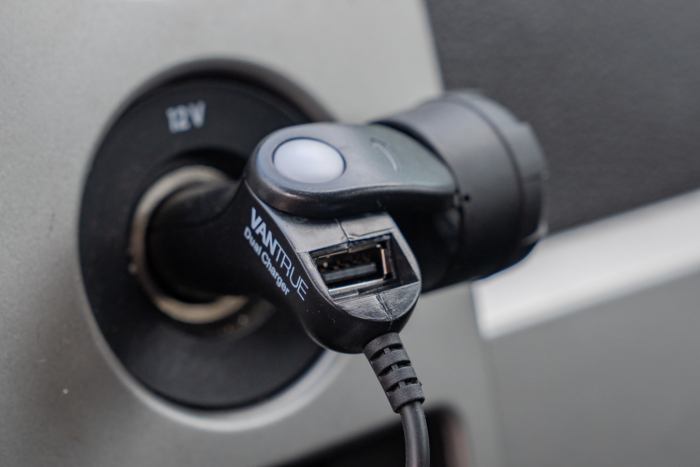
Parked Car Monitoring
Accidents or thefts can happen when your vehicle is parked. Parked car monitoring won’t stop bad deals, but you’ll at least know the cause and occurrence.
Parked car monitoring is exactly what it sounds like: a device that monitors your vehicle while it’s parked. If any motion or G-force is detected by the sensor inside the dash cam, the camera starts recording. Then the device will send the video to your phone to alert you of the incident. This can be very handy for theft, hit-and-run incidents, or if your vehicle is left unattended for a lengthy period of time.
Some dash cams, including the models we tested from Garmin, will even alert you if someone else drives your car. The notification is triggered if the primary phone that’s connected to the app isn’t present. The function is only available through the subscription.
Among our collection, the only camera that totally doesn’t have parked car monitoring is the Insta 360 X3.
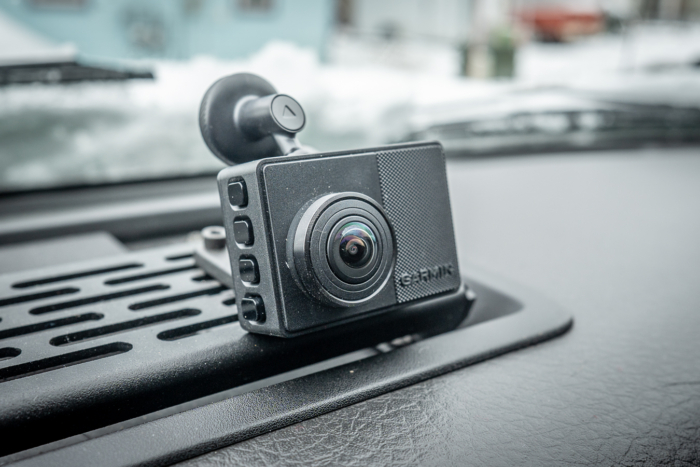
GPS
Having a GPS tracker integrated into a dash cam is a very nice feature to have when monitoring your vehicle. Not only can a GPS show you where your vehicle is at any moment, but it can also capture data about incidents like collision speed, direction, and more. If you’re without cell service, a GPS-powered dash camera can alert emergency services in the event of a crash or other emergencies.
The NextBase 622GW was the only dash cam we tested with a built-in GPS and did not require additional subscriptions. The Garmin 67W does have GPS, but it’s only activated through a subscription. The Vantrue N4 has an optional GPS add-on for $20. The Scosche can sync with a phone via the app for GPS capabilities, but the GPS only works when the phone has cell service.
Looking for a more tailored and dynamic GPS setup? Check out our GPS Trackers for Cars buyer’s guide.
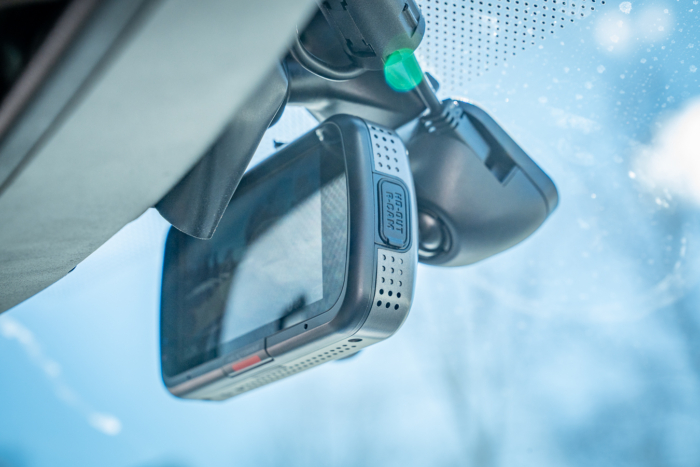
Price & Value
Dashboard cameras can be a very useful tool in the unfortunate event of a collision. These can range from no-frills, bare-bones simple to a full-on feature-packed, multi-use action cam. Below is a list of how the cameras tested in this guide rank from the most budget-friendly to the most premium of cameras.
Budget
If you don’t want to drop a lot of coin, or maybe just test the waters of the dash cam sector, you want to take a look at the Scosche NEXS10032-ET ($50), Garmin Mini 2 ($130), and the DashTrack Series 8 ($139). They’re priced affordably and will get the job done. But with this affordable price point comes lower-quality cameras, materials, and features.
For instance, the Garmin Mini 2 has no touchscreen. This means in order to access videos you have to utilize the app. The Scosche unit’s image quality isn’t the greatest should you need to capture license plate info outside of 100’. And the DashTrack camera could stand to have a wider FOV for the interior cabin camera.
That being said, they are good devices if you are only looking for a little extra peace of mind and are not very concerned with all of the bells and whistles. Any of these would be a solid choice.
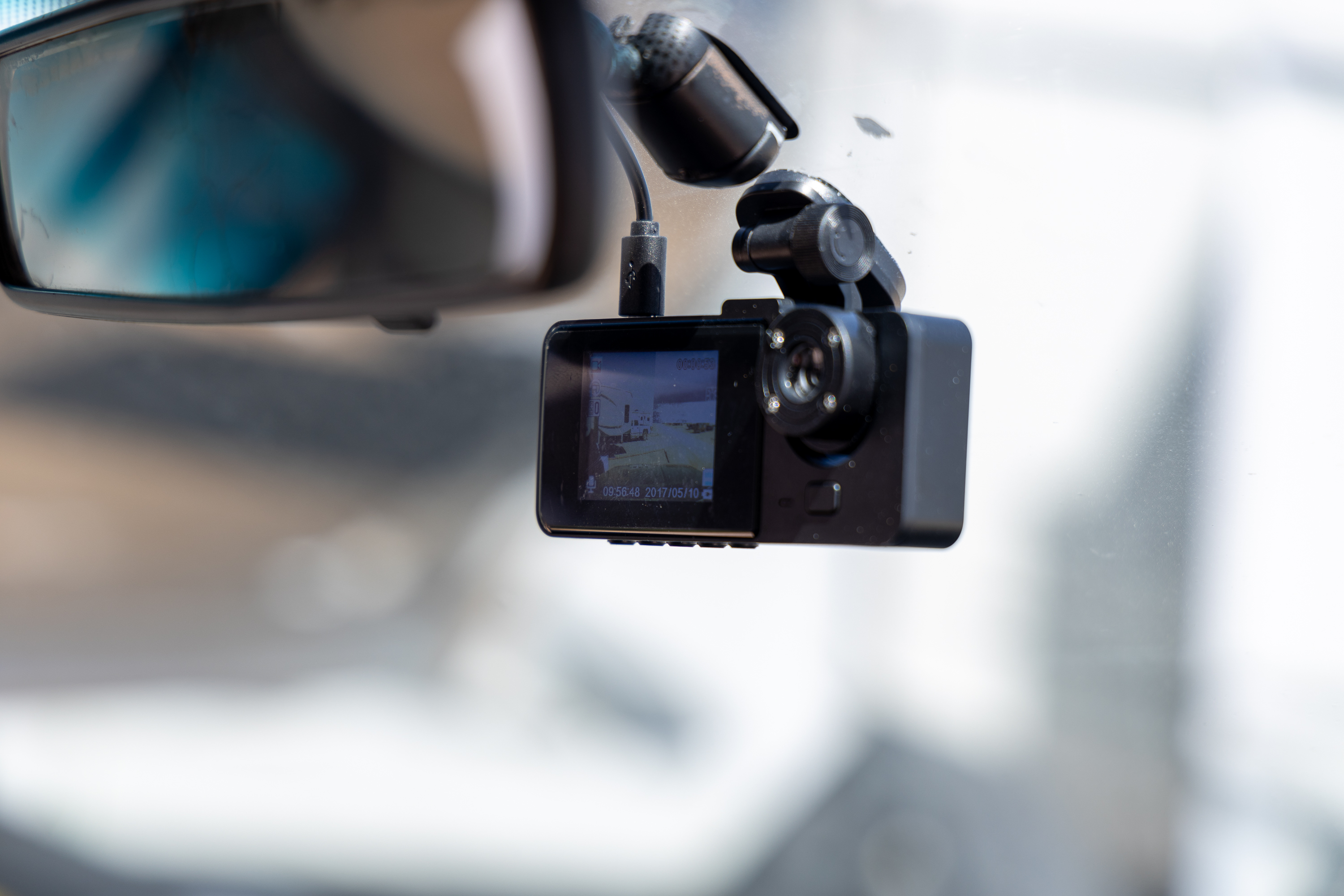
Mid-Tier
For those wanting to step up to something with more features and better image quality, you should consider the Vantrue N4 ($260) or the Garmin 67W ($260). Theses are a bit more out of pocket, but with that comes additional features that could be useful in an accident.
Some of these additional features are things like having 4K image quality from the Vantrue camera or the benefit of voice-activated commands from the Garmin device. The Garmin 67W camera is not quite 4K quality but is still very respectable and a step up from the budget cameras.
But there are some drawbacks to consider. For example, the Vantrue N4 commands a substantial amount of windshield real estate. And the Garmin only has a forward-facing camera.
Premium
At the top tier of the price spectrum, we have the cream of the crop, feature-packed cameras from NextBase 622GW ($500) and Insta 360 X3 ($427).
When you step up to these premium-level cameras you get a ton of ultra-rich features. The NextBase 622GW will shoot 4K at 30fps, has image stabilization as well as a polarized lens to reduce glare and provide deeper richer color. The Insta360 is just that… A 360° camera. No need for any additional cameras. You have a full field of view with this camera in any direction. Plus a huge leap up to 5.7K image quality.
There are some trade-offs offs. Being that the Insta360 is a multi-use camera, it doesn’t come with a lot of the features that a dedicated dashcam would include. The Vantrue has a narrower FOV at 140° than the rest of the field.
But if you’re in the market for the highest image quality, features galore, and in the case of the Insta360 X3, multiple uses outside of just being a dedicated dash cam, then one of these two offerings may be what you’re looking for.
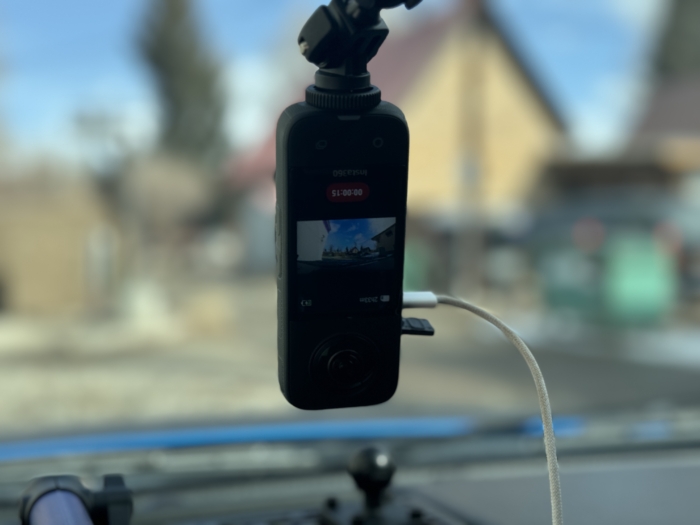
Frequently Asked Questions
The simple answer is yes, you can! While it may take some practice to hide and route the cable dashboard cameras are meant to be installed at home. Reading the included instructions and watching installation videos on Youtube will help with the process.
There are no monthly fees for the dashboard cameras we’ve highlighted in our guide.
There’s one caveat: The Garmin 67W unlocks more features with a paid LTE subscription.
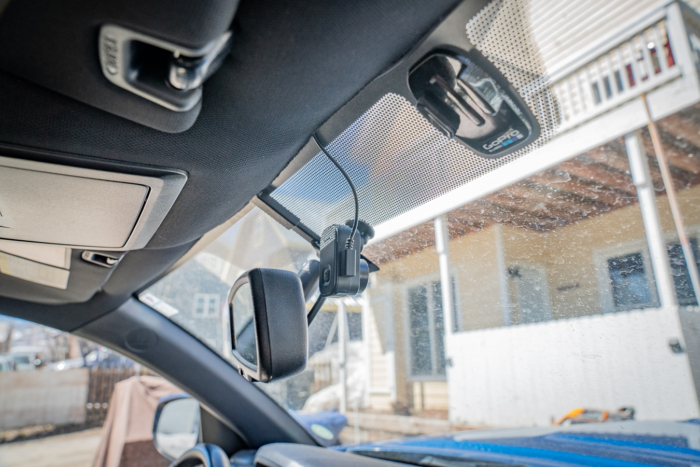
Regular use of a vehicle that is equipped with a dash cam will not result in a dead battery.
Dashboard cameras do use a small amount of power to record videos. When the vehicle is running, the dash cam is continuously powered and on.
When the vehicle is parked, the dash cam still draws power from the car battery though at a slower pace than during the drive. In that case, leaving a car parked for an extended period of time with a dash cam plugged in may result in a dead battery. But the chances of that happening are slim. You shouldn’t worry about a dash cam draining your vehicle’s battery.
In most states, it’s legal to record and use a dash camera as long as the device is not obstructing the driver’s view.
Select states require the vehicle owner to get consent from all passengers before recording. In a handful of states, like Illinois, it’s illegal to record any police officer, including from a dash camera.
Each state has different laws about the use of dash cameras. Make sure to look up the regulations in your state or where you plan to road trip before using one.
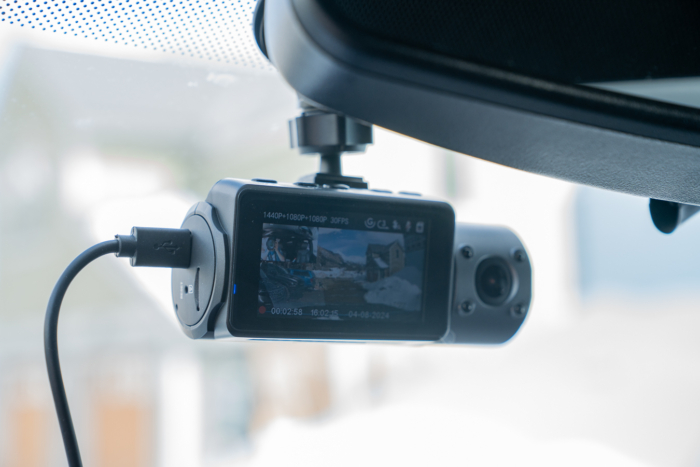
Most insurance agencies don’t offer any discounts for the use of a dash cam in your vehicle, though these recorders can still save you money.
Dashboard cameras provide direct evidence of an accident compared to solely eyewitnesses. In particular situations, a dash cam might prove your innocence in an accident therefore saving you expenses and a potential insurance hike.
Yes. Dashboard cameras are designed to be able to work in virtually any type of vehicle. A caveat to this is our 2008 Ford F250 test vehicle. There was not a suitable location for mounting a rear-facing camera without getting creative and/or modifying a thing or two on both the camera and the truck. Something to keep in mind.
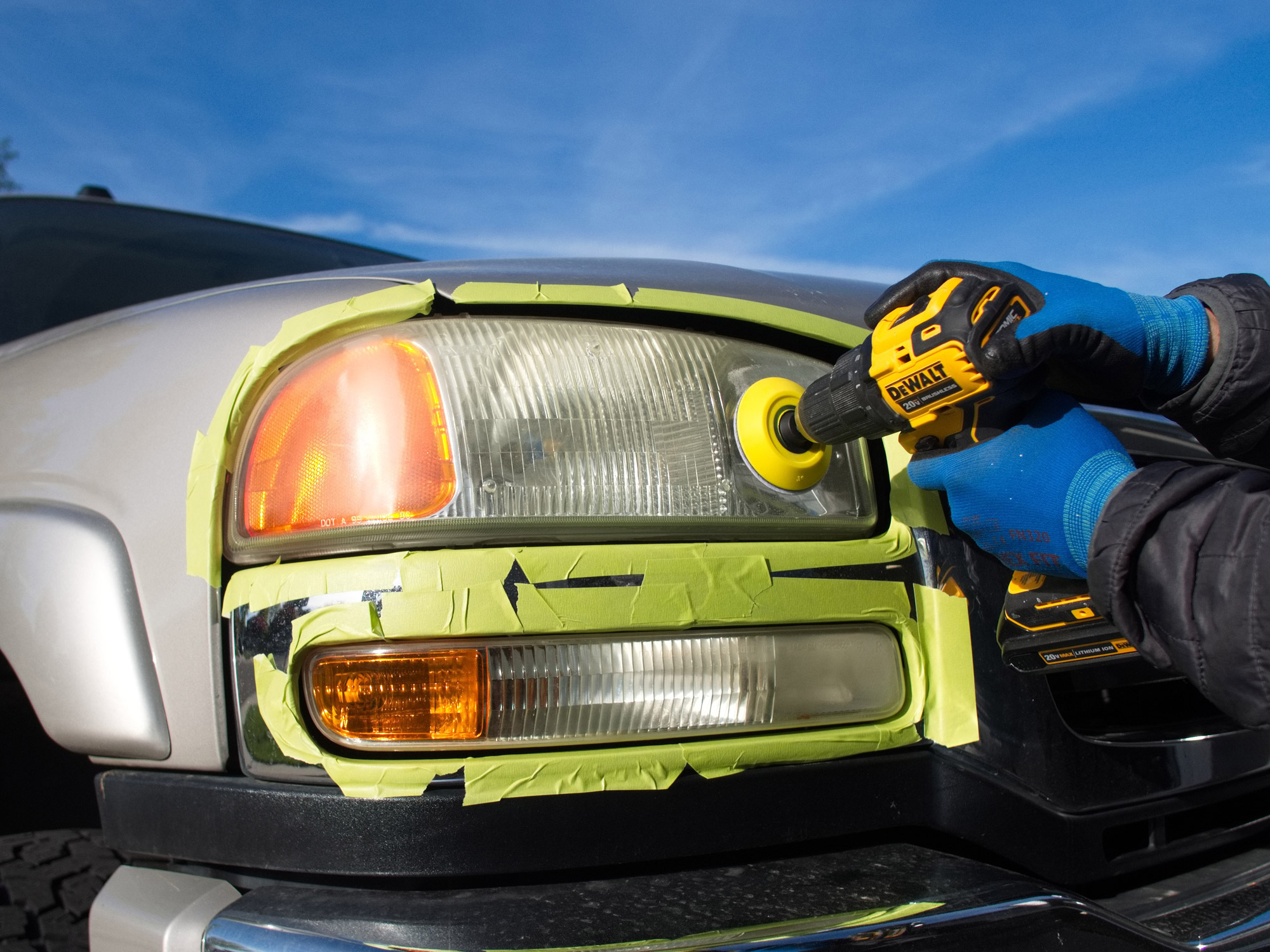
The Best Headlight Restoration Kits of 2026
Fix the discolored and hazy headlights on your vehicle with one of our favorite headlight restoration kits.
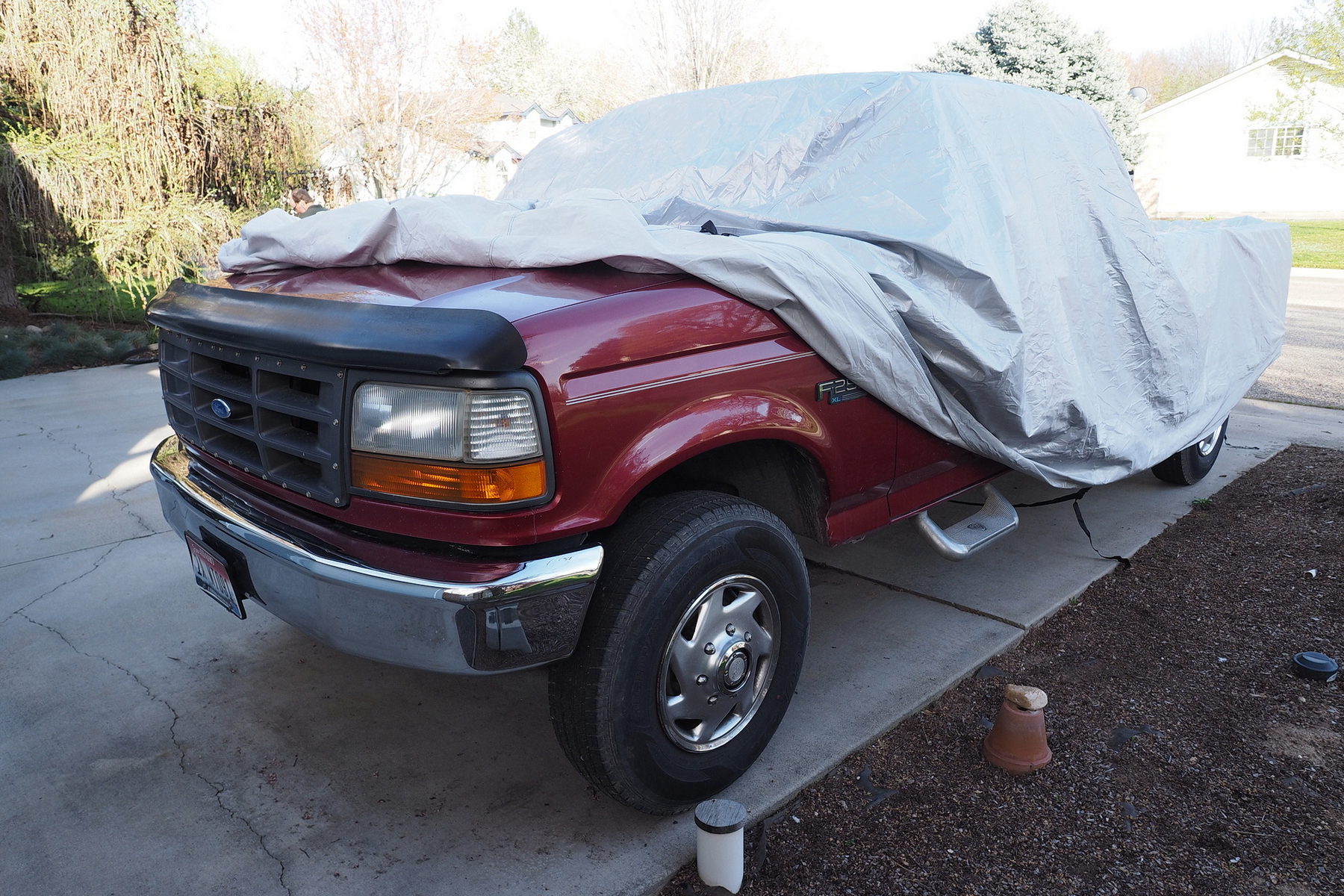
The Best Car Covers of 2026
We tested car covers for indoor and outdoor use in various climates and on a broad range of vehicles to find the best options.
